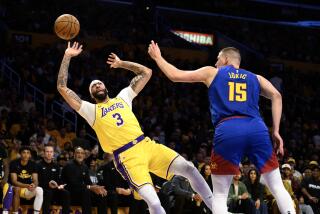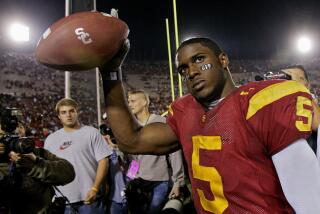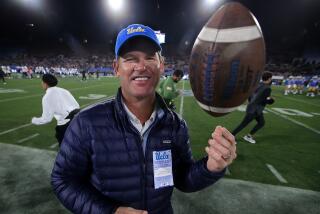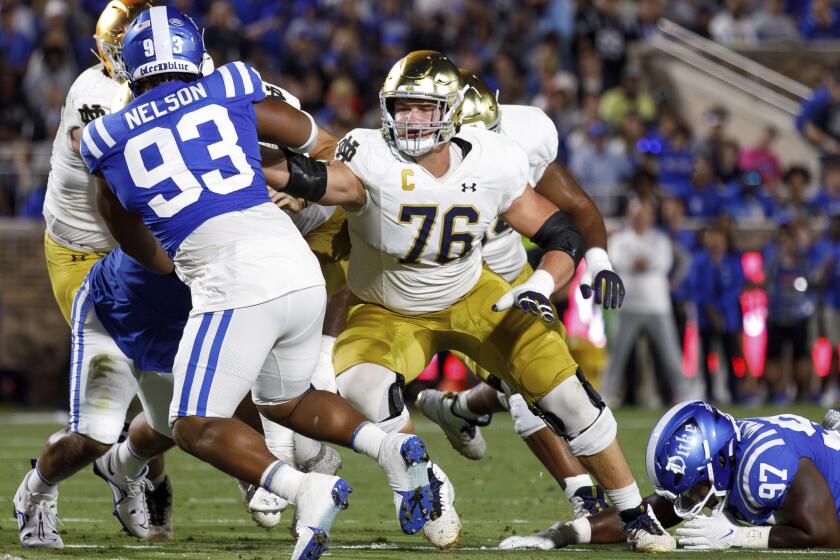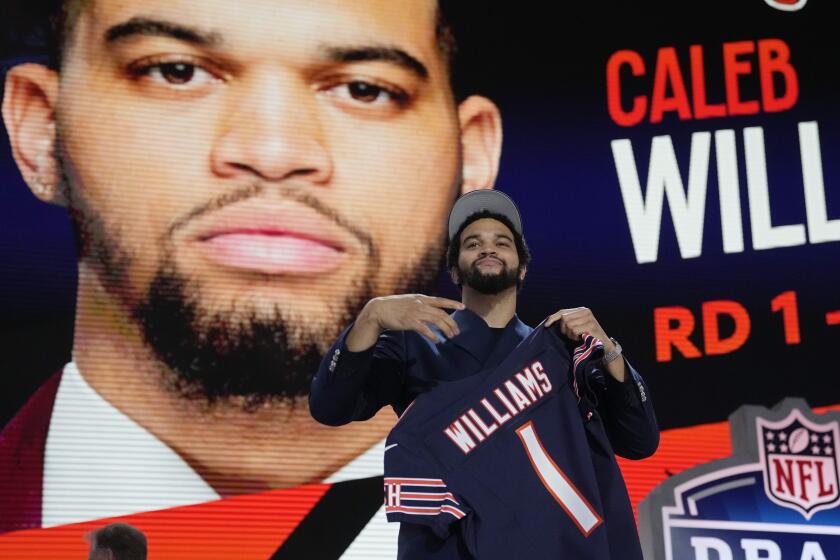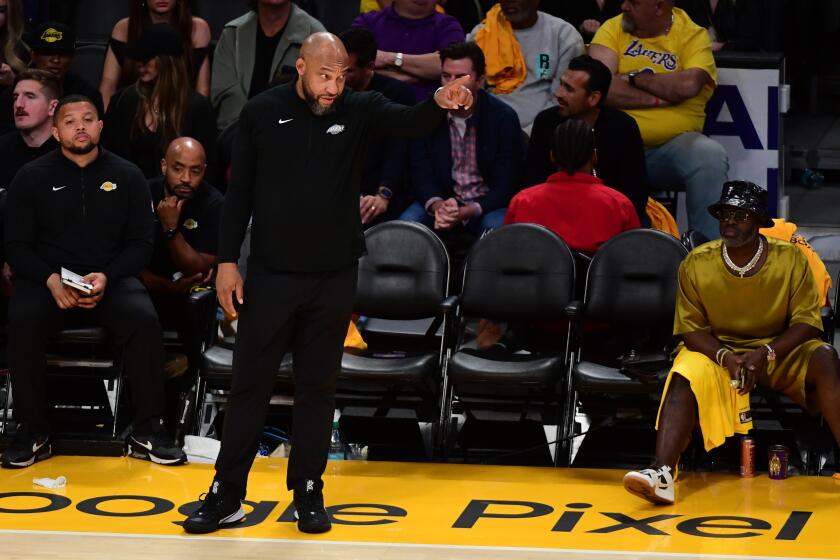Andy Roddick and Roger Federer’s Shakespearean saga of a match
For tennis fans, for sports fans, for fans of drama and skill and guts, what great luck that the Taj Mahal of tennis would produce a second straight match-for-the-ages in the men’s final at the All England Club.
We thought we’d seen it all last year, a marathon finished in darkness, the Swiss king finished off by a Spanish prince, 9-7 in the fifth set.
Rafael Nadal didn’t show for this year’s title defense, sidelined by knee tendinitis, and in his absence everyone figured Roger Federer would walk off with the crown without even suffering a bruise.
This was the thinking, the smart money, the safe bet, even as Andy Roddick began his steady climb at this latest Wimbledon. When the tall and rangy American beat British hope Andy Murray in Friday’s semifinal, a momentous upset, there remained little doubt: Come the final, he would wilt against greatness. Didn’t Roddick have just two wins in 20 matches against Federer?
This, we now know, was the same old Roger -- rock solid, with a magician’s panache. Steady as a metronome. It was his seventh straight Wimbledon final, his 20th Grand Slam final, all since 2003. He’d just won his record-tying 14th Grand Slam title in Paris. Now he was going for the all-time record.
But a different Andy Roddick showed up.
It was Roddick who made this match happen, Roddick who forced the tension and the steady surge of emotion. His game sizzled with half-volley winners, forehand blasts, backhands and serves that touched chalk and went dipping, diving and dancing -- unreturnable.
Roddick brought his own magic for five unforgiving, unforgettable sets. We know about his bad luck. The tense, missed volley in the second set tiebreaker. The break points lost late in the match. We also know about the good fortune he diligently produced -- from the opening stroke, when bright light filled the game’s greatest stage, to the last point, when shadows fell once again on Centre Court.
That serve, what’d it average, 130 mph each time he toed the line? That’s how it seemed. Roddick was Nolan Ryan at the top of his game. But he also moved like Sugar Ray Leonard, and counter-punched like him too.
There was a moment, there were many moments, when it seemed as if he would produce what would have been the most stunning upset at a Wimbledon final since Arthur Ashe beat Jimmy Connors in 1975.
Then we remembered who was on the other side. Roger Federer is not like the rest of us. He has just one weakness, kryptonite named Rafael Nadal, but in the long view, he overcomes kryptonite by never fading away.
Remember last year, after Wimbledon, when it was said that he’d lost his touch? Make way for the era of Nadal, we were told. Since that Wimbledon final, which he was two points from winning, Federer has won three of four Grand Slams.
This, truth be told, is still Roger Federer’s time. And here he has just played yet another match that will stand the test of time. In men’s tennis at Wimbledon, Sunday’s match now sits right beside all the other greatest, most memorable ones. Beside Bjorn Borg beating John McEnroe in 1980. Beside 41-year-old Pancho Gonzales turning back young Charlie Pasarell, taking 5 hours and 12 minutes in the first round in 1969. Beside, among a handful of other matches, Andre Agassi’s startling five-set win over Goran Ivanisevic in the 1992 final.
But that’s the long view. The shorter view, focused on just this last final, speaks solely to the immediate brilliance of two men.
It “could have gone on for a few more hours I think,” Federer said when the 5-7, 7-6 (6), 7-6 (5), 3-6, 16-14 epic was done.
The way these two were playing -- Roddick never backing off, Federer scratching and clawing and defending -- a few more hours of tennis seemed a possibility. Every time one man came close, the other turned him back. Remember that there were, aside from the set points Roddick lost early on, two break points saved by Federer in the middle chapter of the fifth set.
If Federer had lost just one of those fifth-set points, Roddick probably would have won. What a story that would have been. But this wasn’t that kind of story: a thrilling, long-march upset that would finish somewhat conventionally.
No, this was Shakespeare. On and on and on they went.
We watched in awe, surprised as it became clear 2009 was mirroring 2008, which mirrored 2007.
We watched in agony, hearts heavy and sad as Andy Roddick bowed his head after that final miss.
We watched in joy, marveling at a beautiful performance from the greatest men’s champion of all time, a man who has delivered the sublime and supreme for so long it is now hard to remember life without Roger Federer. For tennis fans, for sports fans, for fans of drama, skill and guts, what great luck.
--
More to Read
Get our high school sports newsletter
Prep Rally is devoted to the SoCal high school sports experience, bringing you scores, stories and a behind-the-scenes look at what makes prep sports so popular.
You may occasionally receive promotional content from the Los Angeles Times.
